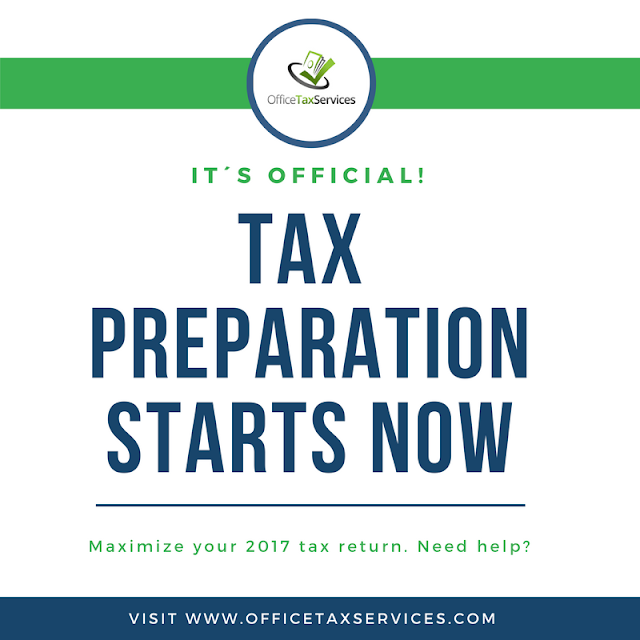
2018 Tax Filing Season Begins Jan. 29, Tax Returns Due April 17;
Help Available for Taxpayers
The IRS will begin accepting tax
returns on Jan. 29, with nearly 155 million individual tax returns expected to
be filed in 2018. The nation’s tax deadline will be April 17 this year – so
taxpayers will have two additional days to file beyond April 15.
Many software companies and tax
professionals will be accepting tax returns before Jan. 29 and then will submit
the returns when IRS systems open. Although the IRS will begin accepting both
electronic and paper tax returns Jan. 29, paper returns will begin processing
later in mid-February as system updates continue. The IRS strongly encourages
people to file their tax returns electronically for faster refunds.
The IRS set
the Jan. 29 opening date to ensure the security and readiness of key tax
processing systems in advance of the opening and to assess the potential impact
of tax legislation on 2017 tax returns.
The IRS also reminds taxpayers that
they should keep copies of their prior-year tax returns for at least three
years. Taxpayers who are using a tax software product for the first time will
need their adjusted gross income from their 2016 tax return to file
electronically. Taxpayers who are using the same tax software they used last
year will not need to enter prior-year information to electronically sign their
2017 tax return. Using an electronic filing PIN is no longer an option.
Taxpayers can visit IRS.gov/GetReady for more
tips on preparing to file their 2017 tax return.
April 17 Filing Deadline
The filing deadline to submit 2017
tax returns is Tuesday, April 17, 2018, rather than the traditional April 15
date. In 2018, April 15 falls on a Sunday, and this would usually move the
filing deadline to the following Monday – April 16. However, Emancipation Day –
a legal holiday in the District of Columbia – will be observed on that Monday,
which pushes the nation’s filing deadline to Tuesday, April 17, 2017. Under the
tax law, legal holidays in the District of Columbia affect the filing deadline
across the nation.
The IRS also has been working with
the tax industry and state revenue departments as part of the Security Summit initiative
to continue strengthening processing systems to protect taxpayers from identity
theft and refund fraud. The IRS and Summit partners continued to improve these
safeguards to further protect taxpayers filing in 2018.






